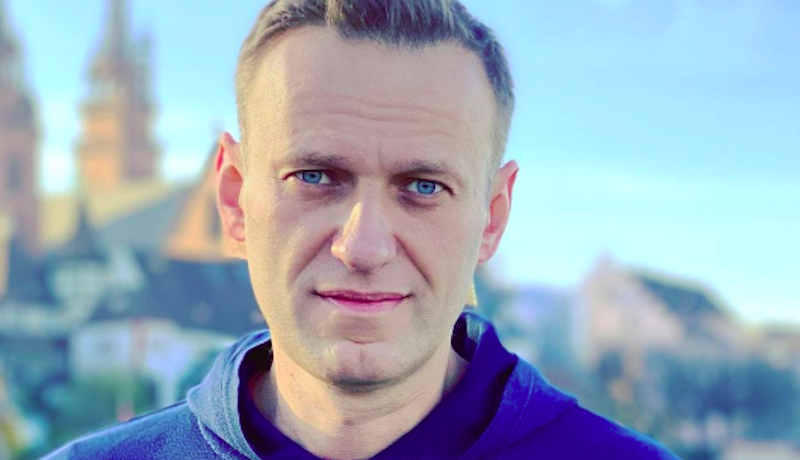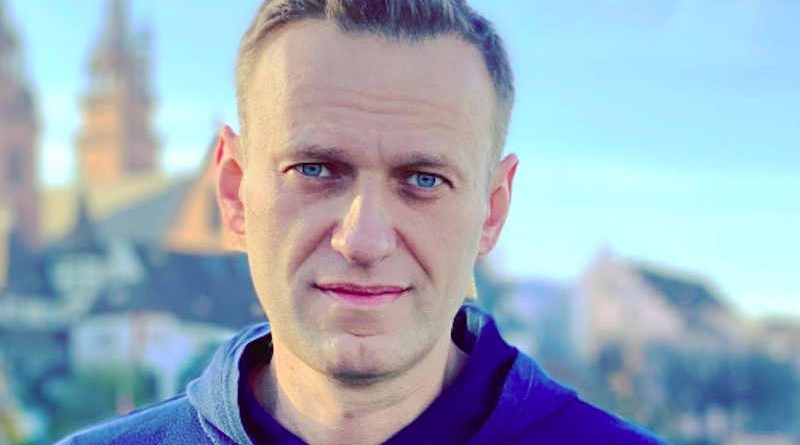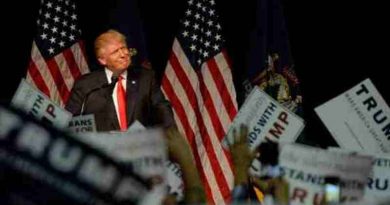Google, Apple Remove Alexei Navalny’s Smart Voting App

Navalny is currently serving a two-and-a-half-year prison sentence after recovering from an assassination attempt.
By Rakesh Raman
The team associated with jailed Russian opposition leader Alexei Navalny said Friday (September 17) that Google and Apple have removed Navalny’s tactical voting guide app from their mobile app stores.
Presumably, the U.S. tech giants took the app removal decision to harm Navalny and favour president Vladimir Putin’s United Russia party in the parliamentary election that began on September 17.
In order to defeat candidates of the United Russia party, Navalny’s supporters have devised a “smart voting” strategy to promote candidates who can defeat those from the United Russia party in various elections.
Meanwhile, Putin is leaving no stone unturned to see that all forms of dissent is crushed, and attacks on his most vocal opponent Navalny is part of Putin’s authoritarian plan. Many of Navalny’s supporters have already fled the country to avoid arrest.
In a tweet released on September 17, human rights organization Amnesty International said that Google and Apple removed Alexei Navalny’s app from their stores at an unlawful demand of Russian authorities; big tech corporations must respect human rights, not assist censorship.
According to a Forbes story, both Google and Apple have not issued a statement about the app’s removal, but Navalny’s ally Ivan Zhdanov wrote about it on Twitter.
Tagging both Google and Apple, Zhdanov tweeted: “Removing the Navalny app from stores is a shameful act of political censorship. Russia’s authoritarian government and propaganda will be thrilled.”
In another tweet, Zhdanov indicated that Navalny’s team may sue Google and Apple for censoring their app, but now they need to focus on disseminating “smart voting” recommendations.
In August, according to Reuters which quoted Interfax news agency, Russian communications watchdog Roskomnadzor had demanded that Alphabet’s Google and Apple remove Kremlin critic Navalny’s app from their stores. The Russian authorities threatened the tech companies that if they did not remove Navalny’s app, it would be construed as meddling with its parliamentary election.
Navalny is currently serving a two-and-a-half-year prison sentence after recovering from an assassination attempt, which was allegedly made with orders from Putin. In June, the Russian government had also outlawed Navalny’s Anti-Corruption Foundation (FBK) by declaring it an “extremist” outfit. Navalny’s FBK has already been declared a “foreign agent” under another draconian law.
The hostile action against Navalny has been taken despite a slew of sanctions and censure statements by the U.S. and European leaders against Russia. It is alleged that after sending him to jail under frivolous charges, the Russian regime is slowly trying to murder Navalny, who is serving a torturous prison sentence near Moscow.
As Navalny, 45, is perhaps the only leader who can challenge Putin’s attempt to rule forever, it is believed that the Putin regime is trying to kill him slowly in jail. Putin has signed a new legislation that will allow him to stay in power until 2036, while his second consecutive and fourth overall presidential term ends in 2024.
In order to terrorize Navalny and his supporters, Russia’s state financial watchdog has designated the “Social Movement Navalny’s Campaign Offices” as extremist entities, although Navalny’s chief of staff, Leonid Volkov, has said previously that there is no legal entity called the “Social Movement Navalny’s Campaign Offices.”
As election fraud is expected to happen to help Putin’s United Russia party win, Russia had even disallowed independent scrutiny of Duma elections scheduled for 17-19 September. The Organization for Security and Co-operation in Europe (OSCE) said in August that it will not be able to send observers for the upcoming elections to the Duma due to limitations imposed by Russian Federation authorities on the election observation.
In the State Duma of the 8th convocation, the lower house of the Federal Assembly, 450 seats are at stake while 15 political parties have submitted documents for participation. In 2016, the ruling party United Russia had won with 54.2% of the vote, taking 343 seats.
By Rakesh Raman, who is a national award-winning journalist and social activist. He is the founder of a humanitarian organization RMN Foundation which is working in diverse areas to help the disadvantaged and distressed people in the society.




